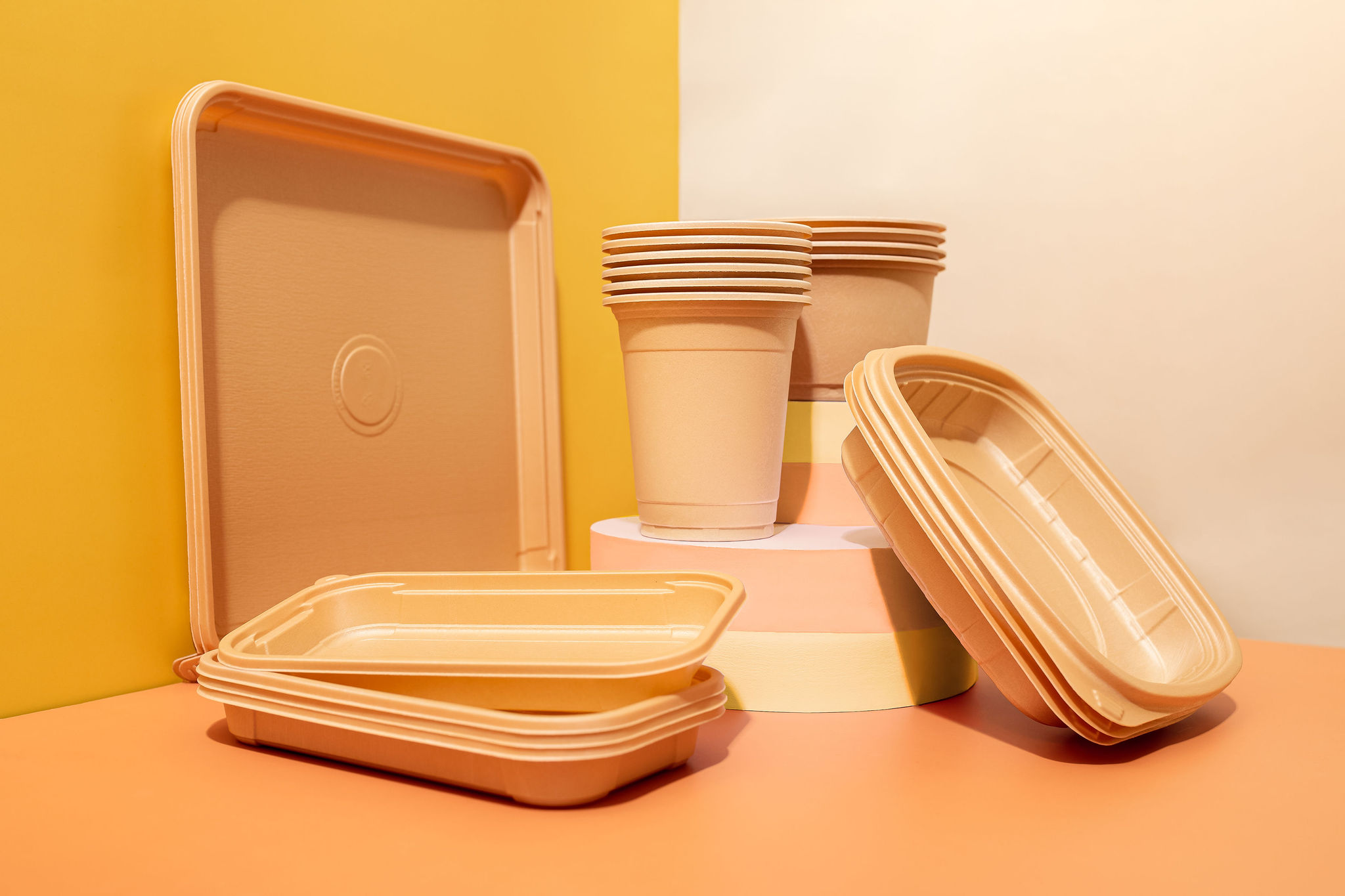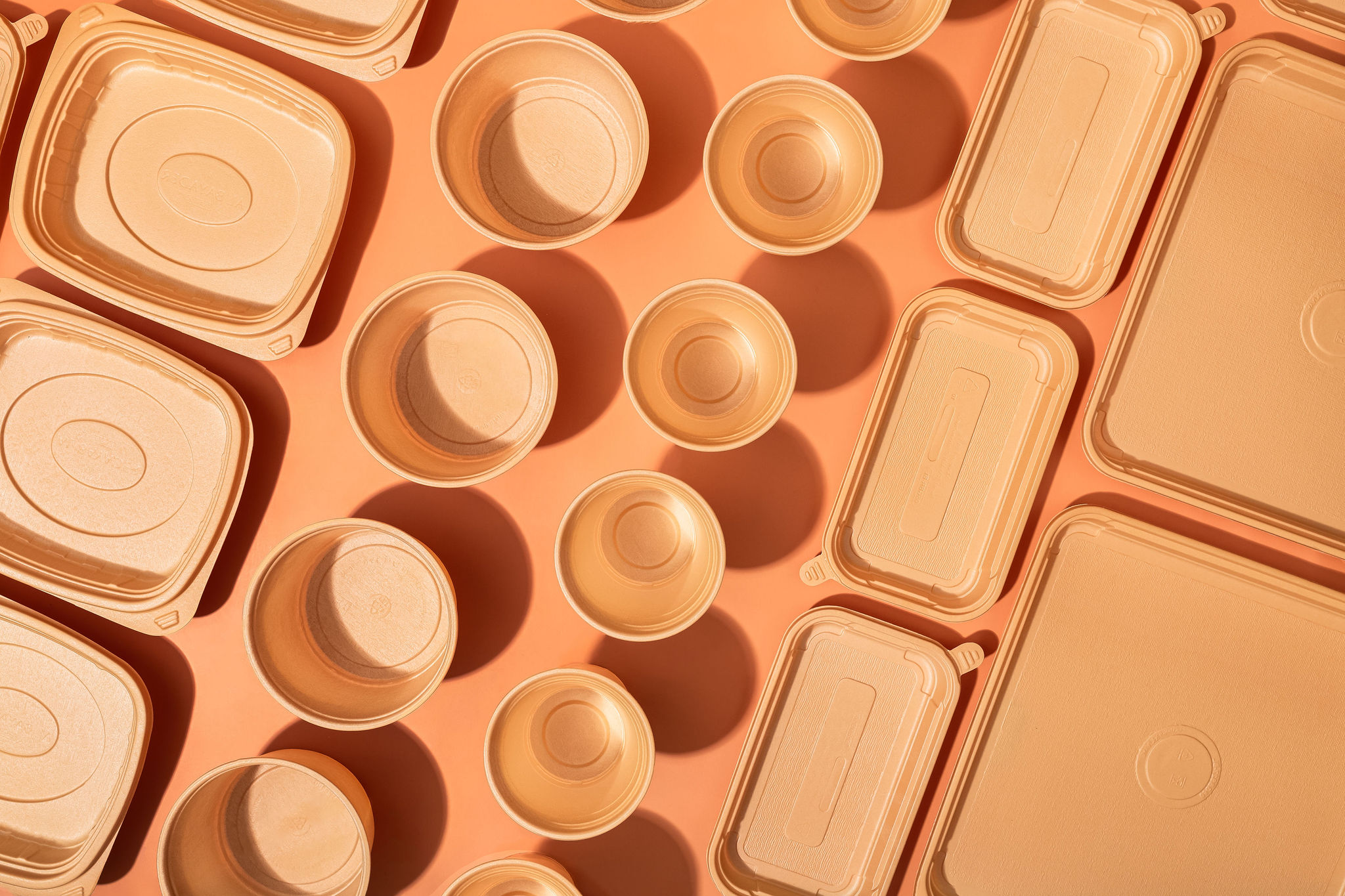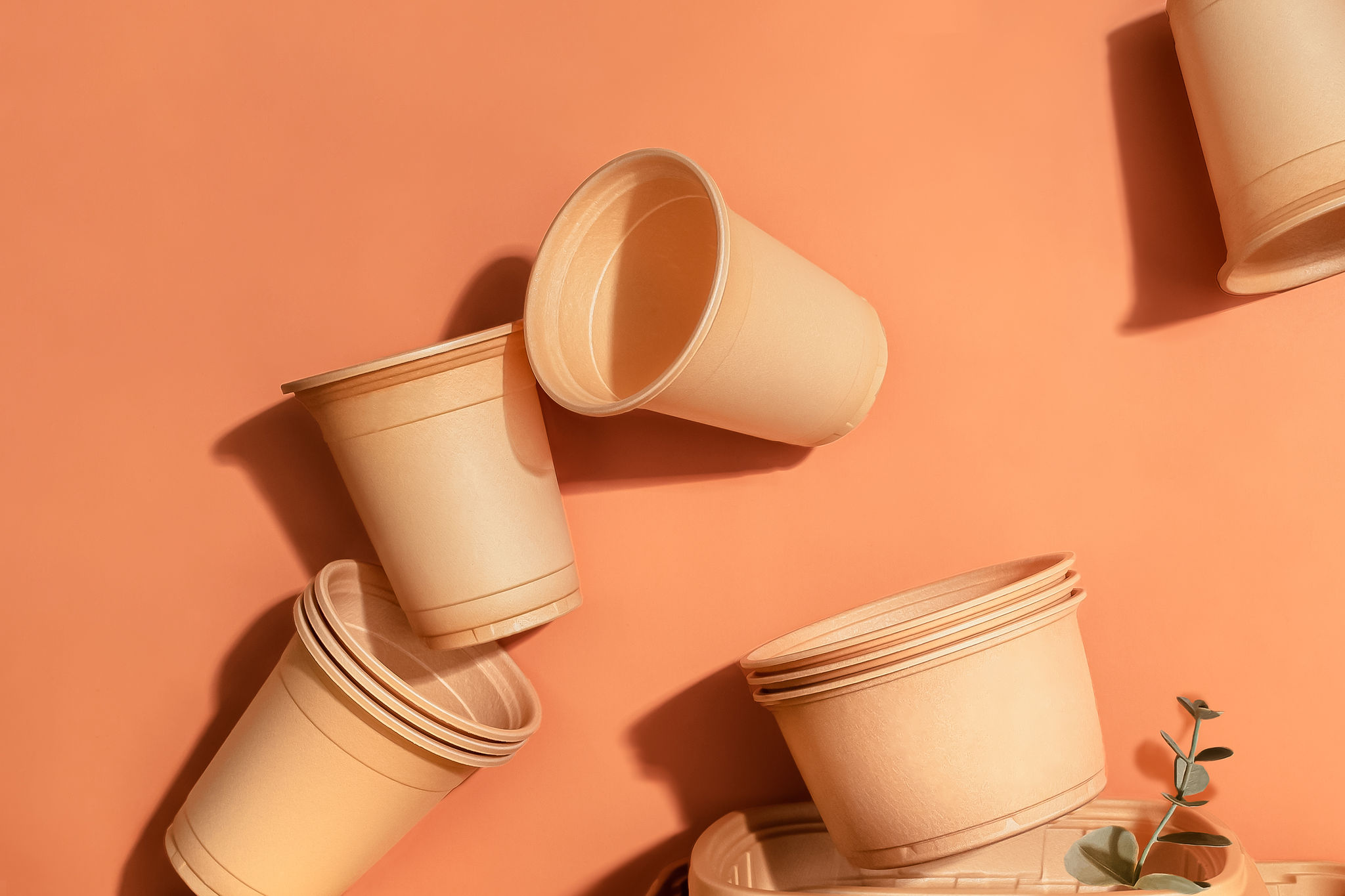October 3, 2023
(press release)
–
Due to its flexibility and cost-effectiveness thermoforming is a process used in various product areas including packaging, medical applications, point-of-sale displays, and product trays. To eliminate plastic pollution, lower the carbon footprint, and ensure the circularity of this vast array of products, it is crucial to move away from fossil-based plastic as raw material towards new sustainable solutions. What is thermoforming? Thermoforming involves heating a plastic sheet until it is pliable. The sheet is then formed into various shapes using a mold. There are many manufacturing benefits to thermoforming. It’s a cost-effective method that allows design flexibility, rapid prototyping, fast production, a high degree of customizability, and easy scaling. Thermoforming is one of the packing industry’s most common manufacturing processes, but it is also used in the production of automotive and aerospace parts, medical equipment, home appliances, electronics, POS displays, and architectural elements, for example. Thermoforming needs sustainable materials to reduce the plastic burden So far, so versatile, right? However, there are sustainability issues related to thermoforming, as traditionally, this process has relied heavily on fossil-based plastics, adding to the vast amount of discarded plastic products plaguing the planet. Waste is also generated during the process of thermoforming due to rejected products, trimmings, and off-cuts. This is why it’s crucial that materials used in thermoforming can be effectively recycled. Furthermore, single-use packaging – whether thermoformed, injection molded, or blow molded – easily ends up in the environment, which is why they should not leave permanent microplastics or hazardous chemicals behind. Moreover, plastics accounted for 3.4% of global greenhouse gas emissions in 2019 and the emissions from the plastics lifecycle are set to more than double by 2060, reaching 4.3 billion tonnes of GHG emissions. Low carbon footprint alternatives need to be adopted fast if we want to keep the planet livable. Is there a sustainable bio-based material for thermoforming that performs? Growing consumer awareness of environmental issues and increasing regulations related to the use of plastics are other factors to consider in the immediate future of thermoforming. Transitioning to sustainable, recyclable materials is one of the best ways manufacturers and companies can tackle the urgent problem of plastic waste in packaging. But these materials have to also be eminently suitable for thermoforming, keeping the advantages this type of process offers. There is a bio-based solution that answers these needs. Recyclable, biodegradable, and eco-safe Sulapac Flow 1.7 offer a sustainable alternative to fossil-based plastic – and a way out of the plastic pollution crisis. Why Sulapac Flow 1.7 is an excellent thermoforming solution Sulapac Flow 1.7 can be used in thermoforming as a replacement for PS, PP and PLA. It offers significant advantages over other bio-based materials. Unlike many other bio-based materials that demand precise temperature control during manufacturing, Flow 1.7’s wood-based composition enables greater thermoforming versatility. Flow’s natural insulating properties provide a broader temperature range within which it remains workable. This expanded range simplifies the thermoforming process, increasing accessibility for manufacturers. Flow 1.7 keeps its cool in temperature extremes Sulapac Flow 1.7 also offers stability during the cooling and heating phases of thermoforming. Traditional plastics often experience significant deformation as they transition between temperature extremes. In contrast, Sulapac Flow 1.7 exhibits minimal deformation, remaining true to its intended shape. This enhances the predictability and consistency of the manufacturing process and can result in increased efficiency and reduced material waste. The environmental benefits of Sulapac Flow 1.7 in thermoforming As mentioned earlier, plastics typically used in thermoforming add to the global plastic waste problem and significantly accelerate global warming. This is where Sulapac Flow 1.7 can really make a difference in packaging sustainability. It does not only offer manufacturing benefits – it’s also industrially compostable according to BPI (ASTM D6400) and has a low carbon footprint. Like all Sulapac materials, Flow too is recyclable by design: Sulapac Flow 1.7 can be both mechanically and chemically recycled – a major consideration as the residue created in thermoforming normally accounts for 10–30% per material sheet. Flow 1.7 contains 72% USDA-certified bio-based content. The material is safe for both people and the planet. The main components are wood from industrial side streams and biodegradable biopolymers. It is possible to use recycled biopolymers too. Sulapac Flow 1.7 leaves no permanent microplastics or toxic load behind. It complies with EU and FDA requirements for food contact materials. If it can be thermoformed, Flow 1.7 can help Sulapac Flow 1.7’s versatility makes it suitable for a wide range of commonly thermoformed items, including: If thermoforming is your manufacturing method and you’re considering switching from fossil-based plastics to a sustainable material, contact us to get your process flowing 😉 



* All content is copyrighted by Industry Intelligence, or the original respective author or source. You may not recirculate, redistrubte or publish the analysis and presentation included in the service without Industry Intelligence's prior written consent. Please review our terms of use.




